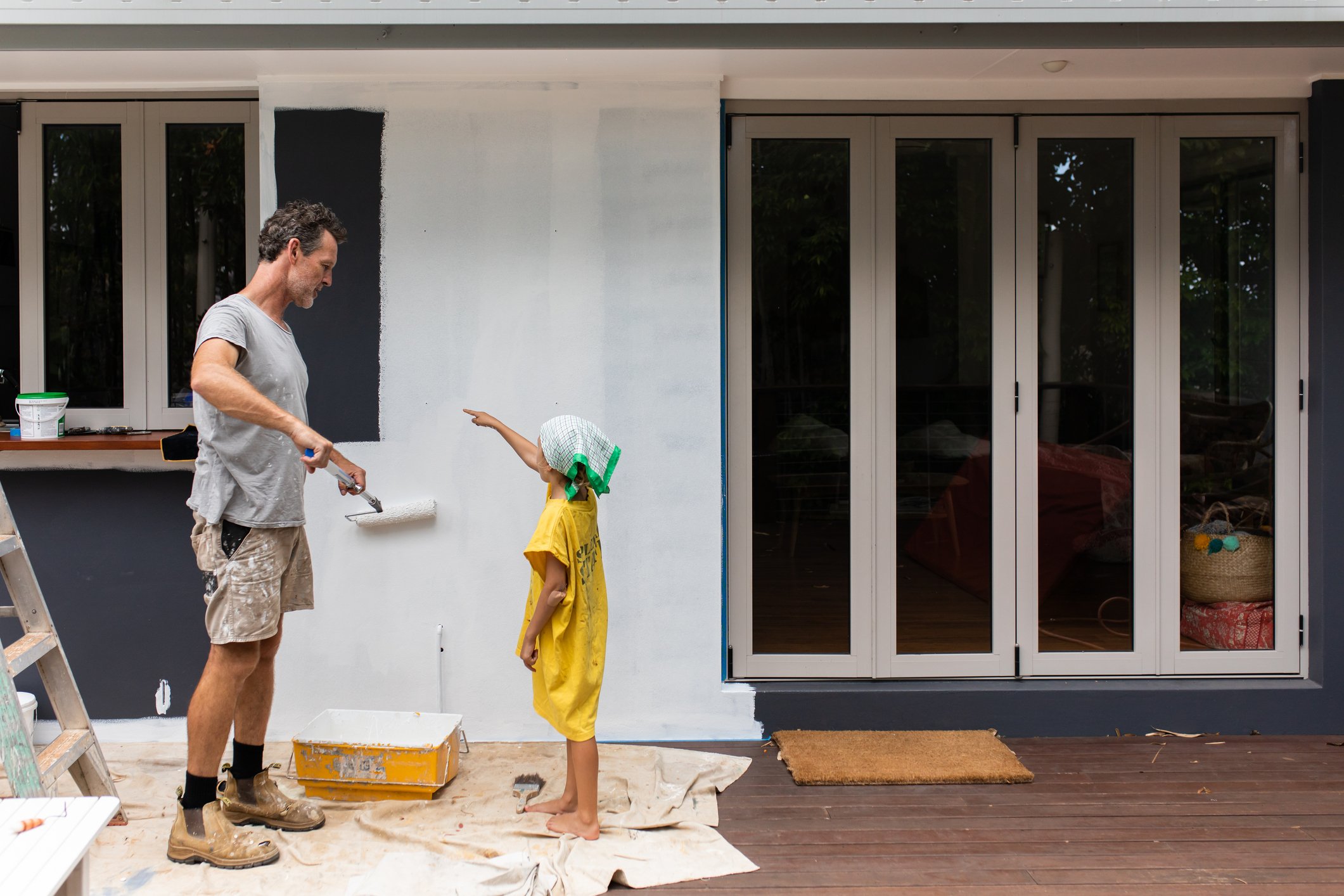Yes, you can renovate an apartment in Australia, but the process may not be as straightforward as owning a detached house under a freehold property title.
The difficulty of the process depends on the type of renovations or alterations you plan to make, the by-laws of your corporate body, and whether you are the owner or the tenant of your apartment.
» MORE: Renting vs buying in Australia: Which is best for you?
Basic apartment renovation guidelines
Renovations fall into three categories: cosmetic, major and minor. The number of steps in the approval process will depend on which of these they fall under.
Before beginning any work, you should always seek guidance from the strata association/body corporate. Take the time to gain as much of an understanding as possible of the legal requirements of strata renovations in your region.
Regional strata rules
Stata title properties follow regional rules. To review State and Territory legislation regarding Strata title properties, see:
If you are a renter or tenant, you need to first seek approval from your landlord. They will then follow the necessary steps to gain approval from the body corporate. Approval may have to go through various committees, such as the owners’ corporation, body corporate, or strata committee. These bodies represent other apartment owners who also must be informed and approve your plans.
Types of apartment renovations
If you’re renting an apartment, it’s always a good idea to review your lease and chat to your landlord before beginning any renovation work.
Cosmetic changes
Cosmetic changes do not need approval. These changes include any work that doesn’t affect the structure or outside of the apartment, such as:
- installing or replacing nails, screws, blinds, handrails, curtains or built-in wardrobes
- painting the interior walls
- laying carpet.
Minor renovations
Minor renovations need approval. They include work such as:
- changes to internal walls
- replacing floors
- wiring/electrical work
- installing air conditioning
- adding double or triple-glazed windows
- making changes to the kitchen (such as replacing cupboards or light fittings) that do not require waterproofing.
You will need permission from the strata/body corporate management, which usually involves submitting detailed plans for the work, including the dates it will be done and who will do it.
You must submit this information at a strata meeting; approval usually requires more than 50% support from strata members.
Major renovations
Only the owners’ corporation can approve major renovations. They include work that changes the outside or structure of the apartment, such as:
- knocking down a wall
- bathroom renovations (installing a new toilet or shower, for example)
- work to the ceiling and roofing
- making changes that require waterproofing.
Major renovations require a 75% vote at an annual general meeting of the owners’ corporation.
If you are an apartment tenant or renter, you must write to your landlord to ask permission. If they agree, they must follow the process explained above.
» MORE: 5 mistakes to avoid as a first-time home buyer
Why are strata rules a factor?
Property titles are a way for the Australian government to track property ownership. A strata title is usually attached to properties such as apartments or townhouses and grants sole ownership of a property but shared ownership of common areas.
This means that if you buy an apartment on a strata title, you own the apartment but share ownership of areas such as hallways, entrances, elevators and parking areas. This shared ownership makes renovating more complicated, especially if you’re planning to make structural changes to the building that can affect other owners.
Current or potential owners can ask for a copy of the by-laws from the body corporate. These rules outline the process for approval for renovations. If you already own the apartment, you should have received the by-laws when you moved in. The owners’ corporation or body corporate represents all the strata owners of the apartment complex. Once you buy a property in a strata scheme, you become part of the owners’ corporation/body corporate.
If you go ahead and make renovations without seeking the correct approval, you may risk having to pay to restore the changes to the way they were before.
» MORE: What’s the difference between joint tenancy and tenancy in common?
What do you need strata approval for?
| Common renovations and alterations | Do you need strata approval? |
|---|---|
| Installing new blinds. | No |
| Painting the walls. | No |
| Installing a built-in wardrobe. | No |
| Filling minor scratches or holes in the walls. | No |
| Wiring, cabling or installing power outlets. | Yes |
| Installing reverse-cycle air conditioning. | Yes |
| Replacing windows. | Yes |
| Bathroom renovations, such as installing a shower or toilet. | Yes |
| Kitchen renovations, such as installing a dishwasher/new benchtops. | Yes |
| Removing/knocking down an internal wall. | Yes |
| Changing the ceiling. | Yes |
| Replacing/installing new flooring. | Yes |
| Installing an access ramp/other types of mobility assistance. | Yes |
🤓 Nerdy Tip
An important factor to consider is that if you want to make renovations that affect common areas — such as hallways, gardens and parking spaces — you may need to change the by-laws for your building. In this case, you would need approval at a strata meeting, and it could take some time before the rules were changed for you to commence renovations.
Tips on getting approval for an apartment renovation
Leave yourself enough time
When planning a renovation, ensure you understand the steps involved and how long the entire process can take. For example, you may need to wait for a strata meeting for owners to vote to approve your renovations.
Legally, strata schemes are required to hold at least one meeting per year. Make sure you allow enough time to get your documents and plans together before this meeting and don’t schedule any work beforehand.
Employ qualified tradespeople
Part of the approval criteria involves ensuring that qualified professionals do the work. Without this proof, your request may be denied or delayed. If you plan to do it yourself or with friends, you’ll need to be licensed to perform the work and can present proof of this to the strata meeting.
Make specific plans
Depending on the type of renovation, you will need to supply the body corporate or strata association with the plans. These include the type of work, when it is scheduled, who will perform it, what equipment will be used, and how long the project will take. The more specific you can be, the better your chance of approval.
Specify the time frame and hours of work
On top of the plans, you need to establish what hours of the day the work will take place. It’s important to remember that these requirements are not in place to restrict owners but rather to respect the other owners and tenants in the building.
For example, bathroom renovations may require turning off the water in the building, which other owners/tenants must approve. Similarly, the use of loud machinery during certain times of the day needs approval.
The main difference between strata title properties and freehold property titles is that freehold properties give the owner sole ownership of the house and land. So, they are free to make changes or renovations as they like, depending on council approval.
Keep this difference in mind if you’re looking to buy a property and wish for more renovation freedom — you may want to consider a freehold property instead.
DIVE EVEN DEEPER

How Much Rent Can I Afford?
Whether you are moving out of your parent’s house, moving in with a partner or making a tree change, it’s important to understand how much rent you can realistically afford to pay.

What Is A Rental Bond?
Beyond weekly payments, one of the largest costs associated with renting is likely your rental bond.

17 Types Of Home Loans For Buyers, Investors And Property Owners
Know the common home loan types for Australian buyers, investors and property owners so you can choose the best option for you.

Rent Assistance: What It Is And How To Get It
If you are struggling to afford rent, you may be eligible for rent assistance from the government.

